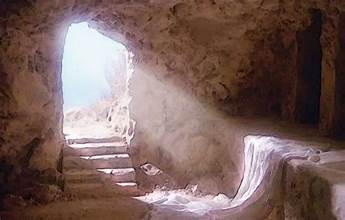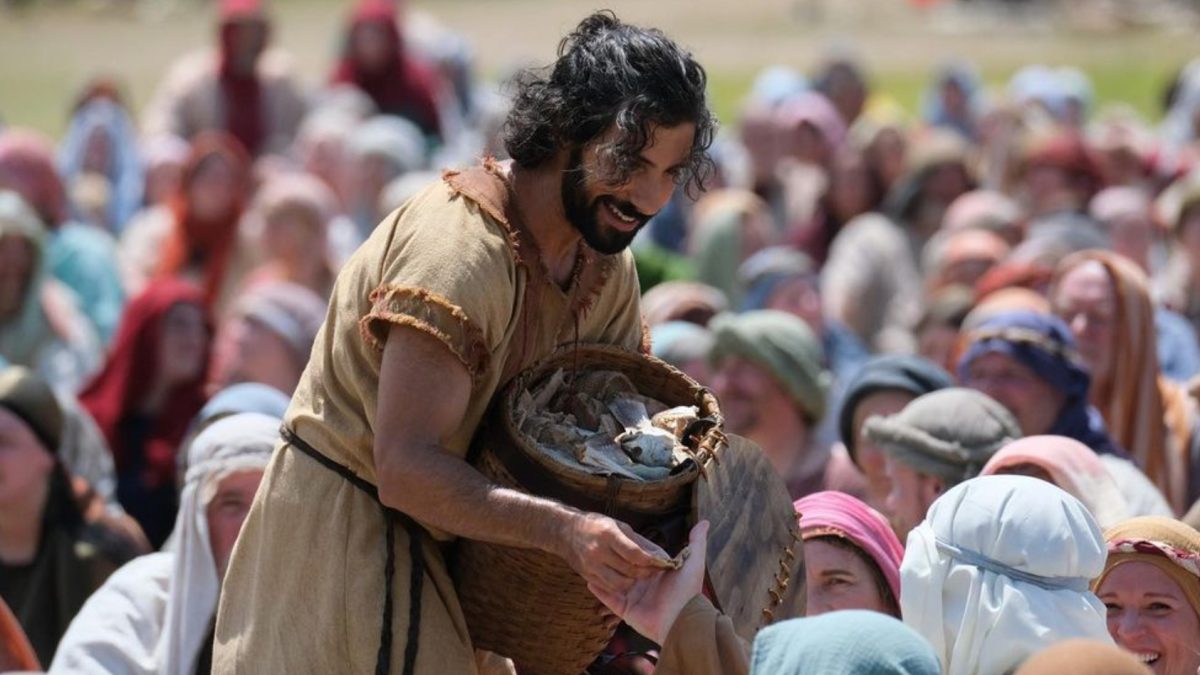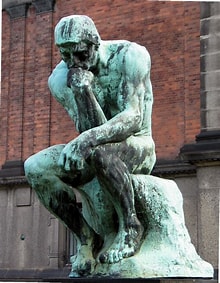Focal Passage: Romans 8:1-2
Our nation will gather this weekend in various ways to celebrate the signing of that document on July 4, 1776. Enjoy the fireworks as they light up the sky. Let your flag wave. Hear the patriotic songs echo through the streets. Freedom is a beautiful gift, bought and paid for by the incredible sacrifice of so many men and women through the years.
Let’s enjoy the day and honor that sacrifice. Let’s also pray that our nation’s leaders uphold in every way the freedoms promised to all of us in the Declaration of Independence and those guaranteed in the U.S. Constitution.
President Thomas Jefferson, about a year before his death in 1826, responded to a letter from Henry Lee IV, an early American historian and the son of Revolutionary War hero “Lighthorse Harry” Lee. In a desire to better understand their motivations for seeking freedom from England, Lee asked Jefferson to explain why he felt compelled to write the Declaration of Independence.
Jefferson wrote back and explained. “This was the object of the Declaration of Independence. Not to find out new principles, or new arguments, never before thought of…but to place before mankind the common sense of the subject…” Jefferson said the document was simply to explain to the world why they chose to separate from English rule.
Read the opening two paragraphs of that cherished document through that lens as if Jefferson himself were reading it to you.
“When, in the course of human events, it becomes necessary for one people to dissolve the political bonds which have connected them with another, and to assume among the powers of the earth, the separate and equal station to which the Laws of Nature and of Nature’s God entitle them, a decent respect to the opinions of mankind requires that they should declare the causes which impel them to the separation.
“We hold these truths to be self-evident, that all men are created equal, that they are endowed by their Creator with certain inalienable Rights, that among these are Life, Liberty and the pursuit of Happiness.”
As one who loves history, the Declaration of Independence is a hallowed document for me. While I don’t do it every July 4, I have often read the Declaration in private reflection and gratitude for being blessed to live within the freedoms it holds dear. I believe it contains great words of promise still unfulfilled in some ways. America is still, and I suspect always will be, a work in progress.
Despite our failure at times to live up to the ideals expressed in the Declaration, I cherish those God-given, inalienable rights it holds true…rights that cannot be sold nor surrendered; rights that cannot be transferred or taken away. They belong to each of us fundamentally by the very nature of our citizenship and our existence as God’s creation.
Life, liberty, and the pursuit of happiness.
As a citizen of the United States, I reflected on the Declaration this week based on Lee’s question to better understand why the document was written. As a citizen of God’s kingdom, I think we must explore a much deeper and important question. What is the nature of true freedom? Is there a spiritual declaration of independence that promises life, liberty and the pursuit of happiness to those who live under the blanket of God’s love?
Paul, in his letter to the Romans, talked to them about his personal struggle with sin. He said his inability to obey the commands and laws of God, drove him farther from God, separated him. Sin became as death to Paul.
When I want to do good, evil is right there with me. For in my inner being, I delight in God’s law, but I see another law at work in the members of my body, waging war against the law of my mind and making me a prisoner of the law of sin…in my sinful nature a slave to the law of sin. (Romans 7:21-22, 25)
Paul declares that all of us fall under the tyranny of sin. He didn’t leave us there. Paul goes on to write what one might consider our spiritual Declaration of Independence.
Therefore, there is now no condemnation for those who are in Christ Jesus, because through Christ Jesus the law of the Spirit of life set me free from the law of sin and death. (Romans 8:1-2)
It’s a declaration of independence Paul echoes to the church in Galatia.
It is for freedom that Christ has set us free. Stand firm, then, and do not let yourselves be burdened again by the yoke of slavery (to sin). (Galatians 5:1)
By taking our sins to the cross, Christ has set free from sin all those who put their trust in him. As a child of God, I am free from the penalty of sin because Jesus already paid the price. I am free of the tyranny of sin and claim my independence from sin’s rule, its condemnation and its hold on me. I declare my freedom through Christ to live without fear of judgment and free to walk in righteousness in relationship with God. For each Christian, these verses are the foundation for a new, liberated life in Christ.
So, I can declare that winter day in 1962 when I gave my heart of Jesus as my Spiritual Independence Day. Your day of independence may be different, but it is just as real.
As ones now living in the freedom God provides, these truths then become self-evident. That we, by virtue of being his sons and daughters through Christ, are endowed or gifted by our Creator with certain inalienable rights; rights that cannot be sold, surrendered, transferred or taken away. Among these rights are life, liberty and the pursuit of happiness.
Life
Listen to the words of Jesus…
I am the resurrection and the life. The one who believes in me will live, even though they die.” (John 11:25-26)
God has given us eternal life, and this life is in his son, whoever has the son has life. (I John 5:11-12)
Jesus’ death and resurrection conquered sin and death and provides the gift of life eternal, liberated from the finality of death. However, that’s just the starting point. It offers so much more.
I have come that you might have life and have it more abundantly. (John 10:10)
This is a promise that life is not just eternal. It is, in the present, full of meaning and purpose. Because of Christ, we live in the abundance of God’s love and grace. Because this life is a gift from God through our belief in Christ, one that we don’t have to earn through perfect obedience or good works, we can live with confidence and hope. Eternal life is promised and assured because we belong to him.
That relationship we have with Jesus means that life in Christ is not just about surviving or punching a ticket to heaven. It is a life filled with purpose, joy, peace and an abiding richness for today. It is a life marked by our ability to experience life as God intended it to be, in service to others and overflowing with his grace.
I find that life-changing.
Liberty
To the Jews who had believed in him, Jesus said, “If you hold to my teaching you are really my disciples. Then, you will know the truth, and the truth shall set you free. (John 8:31-32)
When these same people struggled to understand the freedom Jesus offered, he told them.
I tell you the truth, everyone who sins is a slave to sin. A slave has no place in the family, but a son belongs to it forever. So, if the son sets you free, you are free indeed. (John 8:34-36)
When you get right down to it, that last verse is the Christian’s cornerstone of hope. Jesus has the authority and power to break sin’s hold on us. Because of this, when we trust him, he welcomes us into his family as sons and daughters with permanent belonging. It is not just freedom from guilt or punishment, it is a new identity, one that is not only empowering in the present, but secure and eternal for life to come.
I find that liberating.
Pursuit of Happiness
Let’s deepen the definition of happiness to joy…that abiding sense of gladness, well-being and contentment that is grounded in God’s character, his promises and his presence. Paul draws upon this to remind us that this kind of happiness or joy is not determined by circumstances, but through the power of God’s spirit.
I have learned the secret of being content (joyful) in any and every situation. I can do all this through him who gives me strength. (Philippians 4:11-13)
Even in the face of what seems insurmountable, we find joy in Christ because of the strength he gives to endure and overcome.
Let all who take refuge in you rejoice; let them ever sing for joy, and spread your protection over them, that those who love your name may exult in you. (Psalm 5:11)
Joy comes in relationship to God, anchored in knowing him, trusting his love and experiencing his protection and grace. The Psalmist said that all who take refuge in God rejoice or exult. Exult is not a word we use often, but we should in this context. It means a triumphant joy, to be exceedingly glad. It expresses emotional elation and spiritual celebration of all God has done for us.
Jesus knew this kind of joy because of his connection to his father. He longed for his followers to feel the same. When we remain connected to Christ as he was connected to God, listening to his word, being obedient to his teachings, our joy grows. It transcends the circumstances. In Christ we find a joy that is full and complete. A joy that is resilient in the face of difficulty.
“I have told you this so that my joy may be in you and that your joy may be complete. (John 15:11)
I find that makes me happy.
It’s good to celebrate our national independence and remember to hold dear the rights and responsibilities such freedom requires. It is equally important to celebrate our spiritual Independence Day and to hold dear the life, liberty and happiness it promises and to bear the deeper responsibility it requires to live worthy of the freedom it provides.
Thinking Points
When you read the opening words of the Declaration of Independence, what thoughts or emotions stir in you about the freedoms we enjoy today? What can we do to ensure that those freedoms remain for future generations?
Paul writes that “it is for freedom that Christ has set us free.” What does spiritual freedom mean to you personally, and how have you experienced it in your own life?
How do you see the “life, liberty and pursuit of happiness” promised by God through Christ differently from the freedoms promised by our nation?
Reflect upon your own Spiritual Independence Day,” that moment when you gave your heart to Christ. How has that decision changed you and how has it shaped your life since?








